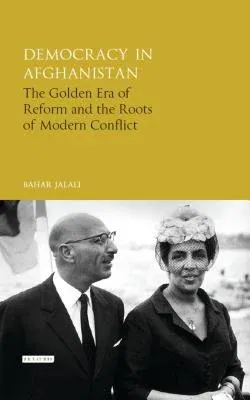The decade of democratic reforms in Afghanistan, 1963-1973, is often
viewed as a 'golden era' of stability and progress. Bahar Jalali
demonstrates, however, that the roots of Afghanistan's turbulent recent
history can be traced back to precisely this period. It was at this time
that the swift implementation - and ultimately failure - of progressive
reforms gave rise to extremist ideologies that would go on to become
politically dominant over the next three decades. The initial promise of
liberalisation and modernisation in 1963 quickly unravelled in the face
of inter-elite competition, factions within the royal family, practical
paradoxes in the constitution and the growth of oppositional movements
(namely communists and Islamists) out of sync with the state's rhetoric.
By tracking this period in detail for the first time, Jalali establishes
exactly why the last three decades of conflict in Afghanistan can be
said to have their roots in this formative period, and demonstrates the
importance of recognising this today.
In work based on primary sources, interviews with key figures (including
the royal family and the former king), and work in contemporary
Afghanistan, Jalali raises timely questions regarding the politics and
impact of Western-authored democratic reforms and addresses various
historiographical and contemporary misconceptions. Democracy in
Afghanistan is essential reading for all scholars interested in the
political, diplomatic and internal struggles of an embattled
Afghanistan, and its future.

